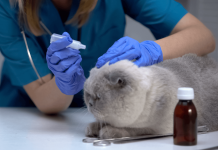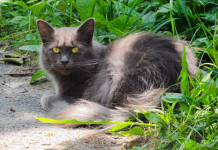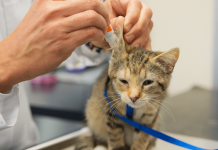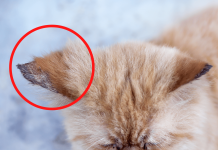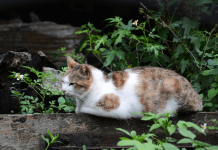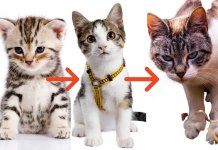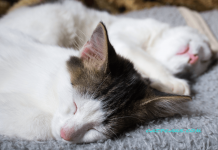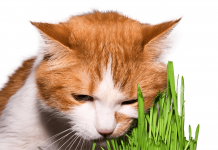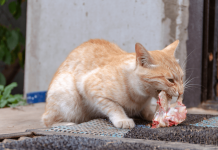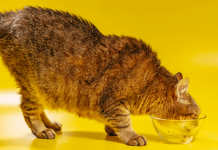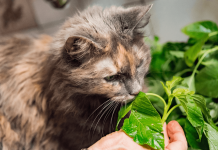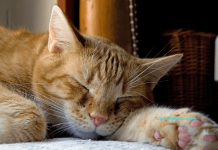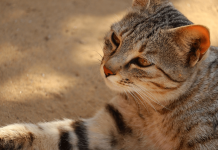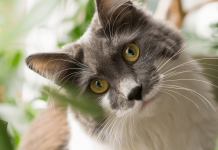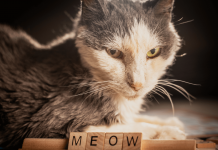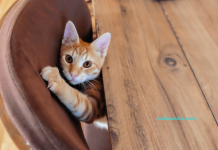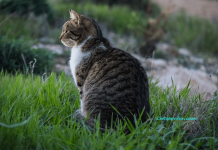A cat can be exposed to various diseases, even if it is an indoor cat. As a cat parent, it is your responsibility to learn more about severe medical conditions.
If you own a cat, there is a high possibility that you have heard about the FIV. But what is FIV in cats? This is an infectious disease that occurs to a cat for many reasons. The good news is, a cat with FIV can live an average life as long as it is not diagnosed with any other severe disease.
Learning about the signs and treatment of FIV will benefit both you and your cat. In this article, I will discuss everything you need to know about FIV in cats.
What is FIV in Cats?
FIV or feline immunodeficiency virus is an infectious retroviral disease. This virus attacks the immune system of the cat and makes the feline vulnerable. The pet becomes exposed to many other infections.
At the beginning stage, the infected cat lives a normal life. But with time, the disease becomes severe, and the cat has to go through the immune deficiency. Some people compare the FIV to the HIV disease.
The statistics show. that FIV cats can be found worldwide. Even in the USA, 1.5 to 3 percent of cats are suffering from this disease. Around 15 percent of normal cats are at higher risk of getting FIV. The virus mainly transmits via bite wounds. There are many more reasons, and we will discuss it in the upcoming sections
How Does The FIV Get Transmitted?

I have mentioned that the main reason behind the FIV transmission is biting. It passes from one cat to another through deep wound bites. This happens when two cats are involved in an aggressive outdoor fight or anything like that.
The FIV can be transmitted to the kitten from the infected mother. When the FIV infected mother feeds milk to the kitten, the baby gets the virus. Sexual contact is another main reason for FIV transmission.
Sneezing, social grooming, sharing food from the same bowl, sharing the same litter box, or any other social activities do not cause the FIV transmission. However, indoor cats are less likely to suffer from FIV disease.
Cat FIV symptoms
The FIV is a slow attacking virus, and so the infected cat may not exhibit any signs of the disease for years. Once the cat starts showing the symptoms, the condition will develop and get worse in a short course of time. In most cases, the cat gets diagnosed with a secondary disease along with the FIV. It is because the immune system of the feline is weak, and any virus can attack it.
Here are the symptoms of an FIV infected cat:
- Diarrhea
- Fever
- Enlarged lymph nodes
- Dental disease
- Anemia
- Fluid discharge from eyes and nose
- Exposed wounds
- The wounds won’t heal
- Weight loss
- Sneezing
- Disheveled fur
- Change in behavior
- Appetite loss
- Inflammation in mouth
- Frequent urination
- Inflammation in eyes
- Skin redness
- Inflammation in gums
If you observe any of these symptoms in your cat, take the pet to the vet for medical help.
Cat FIV diagnosing:
The indoor cats have less chance of having the FIV. Most of the feral or stray cats get this disease. The vets need to do blood tests to determine if the feline has FIV or not.
When you buy or adopt a new cat, make sure to do the FIV test. However, a kitten can be tested positive if its mother is infected. Isolate the kitten for 6 to 7 months. There is a high possibility that the baby will test negative.
The infected cat goes through 3 different stages. Here are the cat FIV stages:
- The acute stage- It lasts for 3 to 6 months.
- The subclinical stage- It can last for a month to years.
- The chronic stage- This stage can also last for months or years.
The FIV treatment:
What will you do if your cat is diagnosed with the FIV? Obviously, you will look for medicines that can cure this condition, right? Unfortunately, there is no specific medication available for this disease. In most cases, the cats carry the virus for years before showing any symptoms.
However, when you notice the sign of the illness, the secondary effect of the infection may start. So, the vet will prescribe according to the condition of the feline. For example,
- Parasite control
- Fluid and electrolyte therapy
- Medication for other infections
- Drugs for inflammation
- Medicine to boost the appetite
- Drugs to increase immunity
Your Responsibility To The FIV Infected Cat:
What is FIV in cats, and how it gets transmitted? You now know, right? Let’s explore what you should do to the sick cat. As a cat owner, you have the biggest responsibility if your cat has FIV.
If you suspect your cat has FIV, do all the tests as soon as possible. Tell the vet all the symptoms you have observed. Also, make sure the cat can not go outdoors or get involved in a fight with other healthy cats.
After getting a positive result, here are the things you should do:
- Spay or neuter your cat if you haven’t done it yet.
- Make a health report of the feline. Note all the changes and consult with your vet.
- Do not let the sick cat play outdoors. If the pet goes outside, it will probably get more diseases.
- Do regular blood, urine, and health checkups of the cat.
- Ensure the cat is getting a healthy diet.
Prevention of FIV in cats:

An FIV vaccine can be a way of prevention. Though this vaccination is available, many experts do not prefer it. Some believe this can interfere with virus testing. That is why I suggest you let the vet decide what will be best for the cat.
No matter if your cat is vaccinated or not, do not expose it to vulnerable diseases. Keep the pet indoor most of the time. Make sure it does not get involved with wild cats.
What is FIV in cats? I hope you have got an overall idea of this disease. Ignoring the symptoms can be dangerous for the cat. So, observe the cat carefully and take the necessary steps if needed.
Related: Why Cats Purr? – Know The 6 Reasons for Cats Purring


